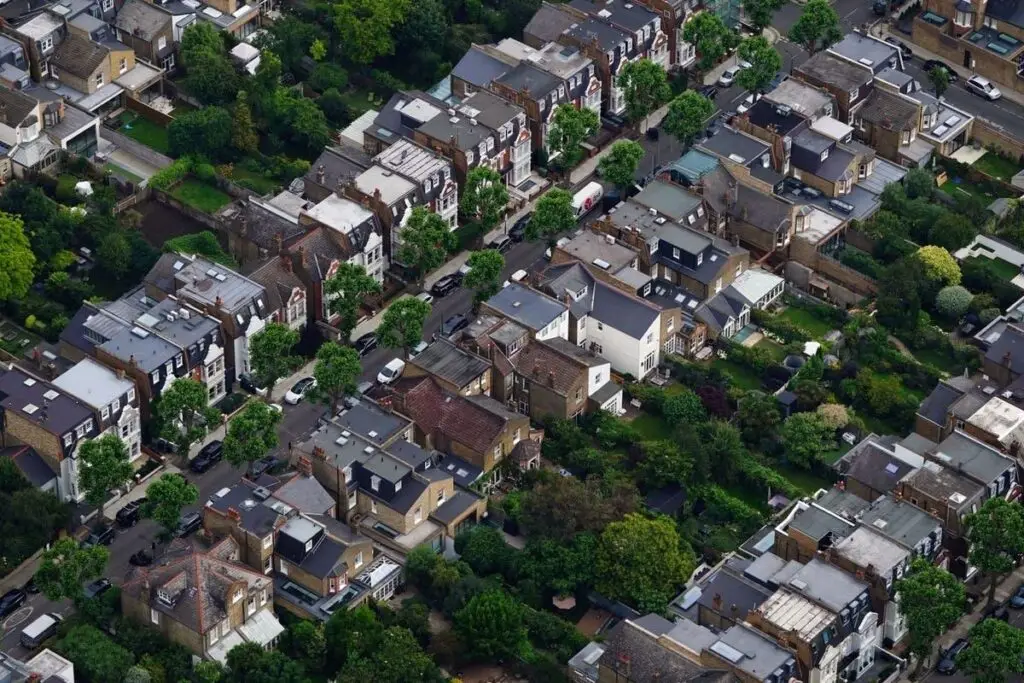Rents outside London have hit new highs, surpassing wage increases. The latest figures reveal that the housing crisis is worsening. The cost of renting is rising faster than wages.
The new Labour administration must address this issue urgently. Tackling nimbyism and increasing affordable housing are crucial steps. The war on the housing crisis must start now.
Rising Rents Across the Country
Despite efforts by many governments, owning a home has felt more and more like a distant dream for years. Now, even renting is becoming unaffordable for many. According to Rightmove, the average cost of renting a home outside London has skyrocketed to £1,314 per month. Considering the average wage is just below £36,000, this is a significant financial burden.
The rental market in London tells a similar story but with even starker figures. Rents in the capital are rising more slowly at 3.7 per cent, compared to 7 per cent outside London. However, the average rent in London is now an eye-watering £2,661, twice the average for the rest of the UK. This means people in the capital are feeling an even tighter squeeze on their finances.
The Housing Supply Crisis
The rising rents are compounded by a severe housing supply issue. Finding a place to live has become increasingly difficult. There are now 17 inquiries for each rental property, more than double the figures before the pandemic. Furthermore, the supply of available homes has dropped by 20 per cent, making the situation even worse.
Polly Neate, CEO of Shelter, points out the reality many face: “A severe drought of genuinely affordable social homes has left private renting creaking under the weight of demand. Millions of renters have no option but to battle it out for overpriced and often shoddy homes, with rents soaring to record highs as a result.”
The Consequences of High Rent
High rents don’t just strain finances; they also lead to difficult choices for tenants. With protections from evictions being minimal, many renters face the threat of ‘no-fault’ evictions if they can’t accept rent hikes.
The shortage of affordable homes and rising rents also justify the ongoing discussion about a housing crisis. Calls for rent controls grew louder during the election campaign. However, while such measures might seem beneficial, they come with their own set of challenges. A hard cap on rents, for instance, may encourage landlords to sell properties, further reducing available rentals.
To fully address the issue, Britain needs more homes—particularly affordable ones. The new Labour government has pledged to address the planning and development challenges that have stymied previous efforts. Yet, solving the housing crisis will require more than just promises.
The Impact of Nimbyism
A major barrier to building new homes is nimbyism, an attitude of ‘not in my backyard.’ This resistance has been a significant hurdle for past governments.
If the new government is to succeed in meeting its housing targets, it will have to tackle this mindset head-on. This means encouraging development in high-demand areas, such as the South East, where nimbyism has been particularly strong. More homes in these areas could alleviate some of the pressure on the rental market.
The South East is a politically sensitive region. In the 2019 elections, it was mostly a Conservative stronghold, but Labour has made significant inroads, holding 36 seats compared to the Conservatives’ 30. How Labour navigates these political waters could determine the success of its housing policies.
The Role of Government Policies
There have been some positive signs from the new government. Proposals to end ‘no-fault’ evictions and ban landlords from encouraging tenants to bid against each other for rent are steps in the right direction. However, these proposals need to be enacted swiftly to make a meaningful difference.
The housing crisis has been an issue for decades, with little significant action taken by successive governments. Therefore, the public is expecting the new government to act decisively.
Voters want affordable housing to become a reality. The government must prioritise this to avoid paying the price at the next election. Addressing the nimbys will be critical to achieving this objective. If ignored, the impact will likely be seen in future election results.
Conclusion
The current state of the rental market is dire. Rising rents and a shortage of homes mean many people are struggling to find affordable housing. The new government has made some promising proposals, but these need to be turned into action swiftly.
Overcoming the challenges posed by nimbyism and creating more affordable homes will be crucial. Without these changes, renters will continue to face high costs and uncertainty.
The challenges posed by rising rents and housing shortages are pressing issues that cannot be ignored. The government’s proposals are a step in the right direction, but they need to be implemented swiftly to make a tangible impact.
Addressing nimbyism and increasing the supply of genuinely affordable homes are crucial steps. Without accelerating these efforts, renters will continue to face financial strain and insecurity.

